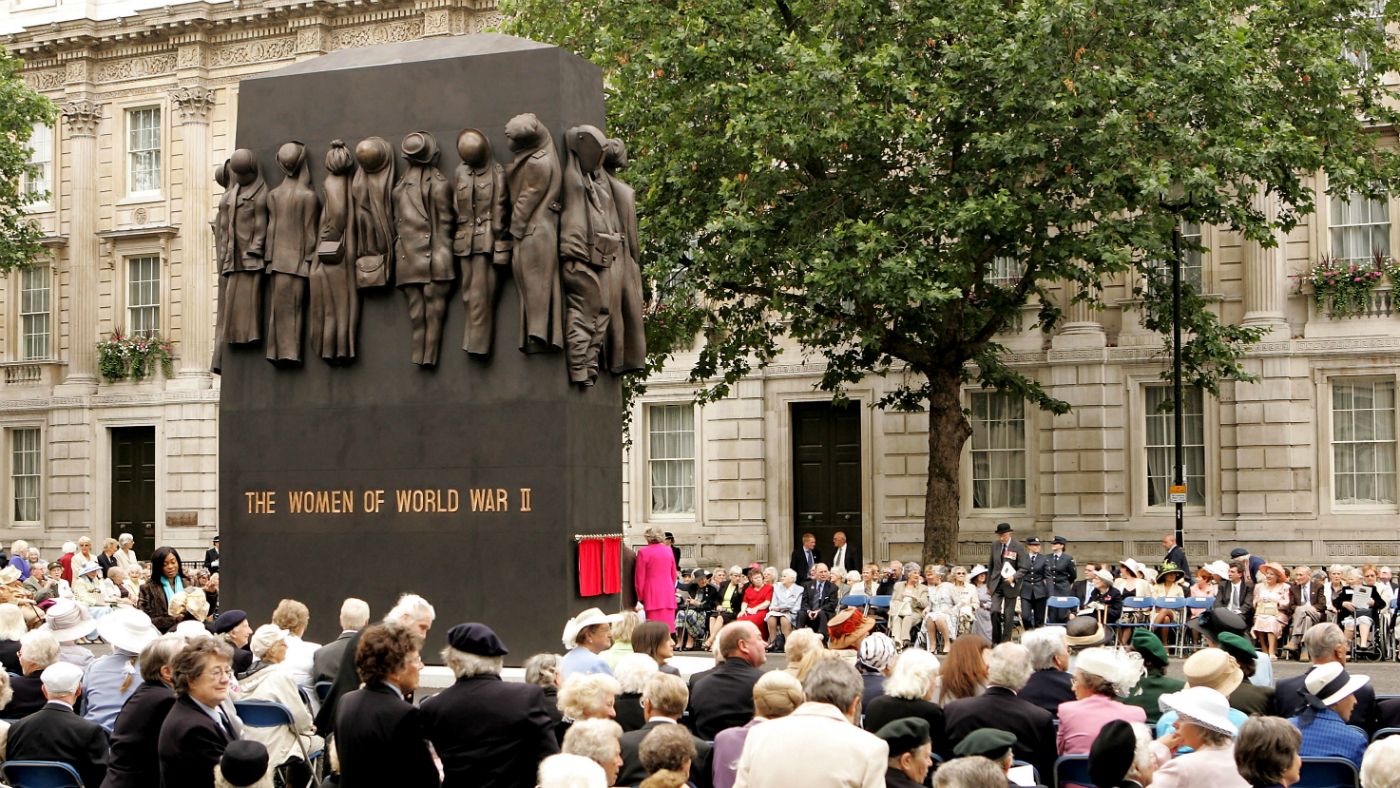100 years of women at war
UK commemorates a century of the Women's Army Auxiliary Corps

A free daily email with the biggest news stories of the day – and the best features from TheWeek.com
You are now subscribed
Your newsletter sign-up was successful
Events are being held across the UK today to mark the centenary of the founding of the Women's Army Auxiliary Corps, which allowed women to join the British Armed Forces for the first time.
Since the establishment of the Corps, female soldiers have served alongside men in nearly 50 wars and conflicts, including both World Wars, the Falklands, Bosnia and Iraq.
"It is right that we take a moment to pause, reflect and celebrate their contribution," said Sir Andrew Gregory, chief executive of SSAFA, the Armed Forces charity.
The Week
Escape your echo chamber. Get the facts behind the news, plus analysis from multiple perspectives.

Sign up for The Week's Free Newsletters
From our morning news briefing to a weekly Good News Newsletter, get the best of The Week delivered directly to your inbox.
From our morning news briefing to a weekly Good News Newsletter, get the best of The Week delivered directly to your inbox.
Below is a look at the history of women in war.
1917
"From ambulance drivers to translators, women served Britain in a variety of ways during the First World War," says the Imperial War Museum.
In total, over 100,000 women joined Britain's armed forces during the war, in order to free up men for combat roles.
A free daily email with the biggest news stories of the day – and the best features from TheWeek.com
"It is often represented as having had a wholly positive impact, opening up new opportunities in the world of work," the museum says. "But the reality is more complex. Not all of the opportunities the war provided to women were entirely positive or long lasting."
1940s
During the Second World War, women served in an even wider range of roles, from spying to code-breaking.
"Recruitment posters showed women as glamorous and independent, and images of women, especially in uniform, were used to sell everything from cigarettes to shoes," says the BBC.
Freydis Sharland, who was 21 when she started flying Spitfires for the Air Transport Auxiliary, said "it was the sort of interesting job men like to do and not let women in. But we were very fortunate. The war gave us an opportunity," the 89-year-old told the Daily Telegraph in 2009.
1999
Flight Lieutenant Caroline Paige became the first openly transgender woman to serve in the military nearly two decades ago.
"I was expecting to be thrown out because that was just how the world was then. When I did have the courage to tell people, I was really shocked that I could keep my job," the former RAF officer says.
Though she faced harassment from her crewmen at the time, Paige believes significant progress has been made since then. "Trans people [in the military] don't have to put up with what I did, hiding who they are or living in fear of being thrown out," she says.
2008
During a patrol in Afghanistan's Helmand province, Sergeant Chantelle Taylor was ambushed by Taliban fighters and forced to return fire, becoming the first British female soldier to kill an enemy combatant.
"I didn't run around thinking it was cool," the Army medic told the Daily Mirror earlier this year. "But it was something that had to happen – given the choice between him and me."
2016
A ban on female soldiers serving in close combat units on the front line was lifted by David Cameron's government following a recommendation from senior Army officials. Women, who had previously been allowed to serve on the front line only in support roles, were allowed to join armoured units in 2016 and will be able apply for all close ground combat jobs by the end of 2018.
"Myths regarding women's physical inferiority, questionable mental discipline and emotional stability, to name a few, have long been disproved by research and finally it seems like policy has caught up with the facts," Leanne Simpson wrote for The Conversation after the ban was lifted.